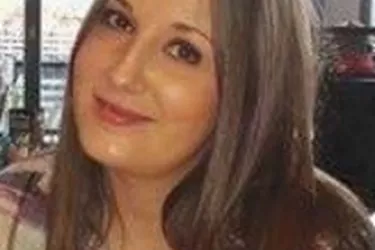Ed's story
Ed explains how he's using his experience of depression to help other police officers.
I've been a police officer for 15 years, always working the front line.
Occasionally I worked as a family liaison officer, dealing with families who had lost loved ones. I felt confident and competent in the role, but unbeknownst to me it was slowly eating away at both my emotional and mental wellbeing.
Seven years into that role, I had to meet the parents of a young lad. As they grieved for him in the mortuary, suddenly my 'shield' – the one you develop as a cop, the one that protects you from all the death and destruction you deal with – just disintegrated. I cried for the first time at work that day; I cried with the family, I cried in the car afterwards and at home later that night. I put it down to being tired and a little run down. But things were never the same.
I had two options [...] I could lie and make something up, or tell the truth. I am so glad I decided to be honest and open.
Over the next few years I deteriorated further. I wasn't able to cope with things in the same way anymore. Anything even slightly emotional hit me hard. The person I thought I was had started to fall apart at the seams. And I still genuinely believed there was nothing wrong with me; that everyone else felt the same, they just coped better.
Then, on the 16th June 2012, while working as a custody officer, everything changed. I arrived at work but I just couldn't connect with what was going on around me. I had been like a boiling kettle for months, with a relentless screeching noise in my head – and then, suddenly, it clicked off. There was finally silence.
At first it felt great. It was a relief to have respite from everything I had been going through. But the downside was I now didn't care about anything – myself, my family or friends. I just wanted to be left alone.
I was no longer functioning and I had no choice but to take time away from work. There wasn't much left of me. The person I thought I was – my identity – had turned to dust.
It was almost a year before I was able to return to work. I had convinced myself I was the only police officer that had ever had a mental illness. I thought, how am I going to tell people I am suffering from depression and I'm not the same person anymore? I had two options. When someone asked: "Where have you been?" I could lie and make something up, or tell the truth. I am so glad I decided to be honest and open.
People react with empathy, and often disclose that either they, a family member or a friend has suffered from mental illness.
I've never had one negative reaction. People react with empathy, and often disclose that either they, a family member or a friend has suffered from mental illness. How stupid is it to think that people who work in the blue light services, who deal with all the bad things in society, are immune from mental illness? We are not, and there is no shame in that.
We teach officers how to protect their bodies from physical harm. What we don't do is help them to protect their minds and ultimately their mental wellbeing.
Under the banner of the Blue Light Programme, I talk to new recruits. I tell them my story and hope they see that it's completely natural to feel upset with what they will encounter as police officers, and that it's OK to talk about it. Because talking with a colleague, friend or family member might help process how you are feeling and prevent it from becoming that seed which grows and grows and one day erupts – like it did with me.
Talking with a colleague, friend or family member might help process how you are feeling and prevent it from becoming that seed which grows and grows...
This isn't how I saw my career panning out when I joined 15 years ago, but if this is my legacy, if sharing my experience helps to make a change within the service and ultimately helping other officers stay well, then I'm more than happy with that.


Information and support
When you’re living with a mental health problem, or supporting someone who is, having access to the right information - about a condition, treatment options, or practical issues - is vital. Visit our information pages to find out more.
Share your story with others
Blogs and stories can show that people with mental health problems are cared about, understood and listened to. We can use it to challenge the status quo and change attitudes.















